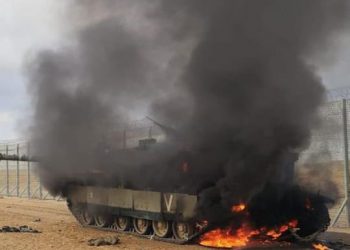NATO has announced plans to deploy an additional 700 troops to Kosovo in response to rising tensions with ethnic Serbs. Secretary-General Jens Stoltenberg stated that an extra battalion of reserve forces has also been placed on high alert for potential deployment if necessary.
Stoltenberg emphasized the need for an end to the attacks in Kosovo, urging all parties involved to cease hostilities.
The decision comes after clashes between NATO soldiers and ethnic Serbs on Monday, which resulted in injuries to 30 NATO personnel and approximately 50 protesters.
Explainer: The Background of Tensions Between Serbia and Kosovo
Kosovo, a former province of Serbia, unilaterally declared independence in 2008. However, Serbia does not recognize Kosovo’s independence.
The majority of Kosovo’s population is composed of ethnic Albanians, but there is a Serb minority located in the northern region bordering Serbia.
In related news, Serb protestors reportedly vandalized two cars belonging to Albanian journalists in the town of Leposavic. Masked individuals approached a car with an Albanian number plate marked as “A2, CNN affiliate” and smashed the windshield. Another vehicle belonging to a different media outlet was also damaged, but no injuries were reported.
Tensions in the region have intensified following the election of ethnic Albanian mayors in northern Kosovo’s Serb-majority areas, which the Serbs boycotted. This move prompted criticism from the US and its allies toward Pristina.
While the United States and most European Union nations have recognized Kosovo’s independence from Serbia, Russia and China have aligned themselves with Belgrade on this issue.
China expressed support for Serbia’s efforts to safeguard its sovereignty and territorial integrity, while Moscow has consistently criticized Western policies concerning the Kosovo dispute.

